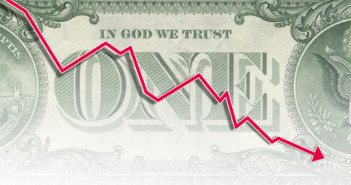Towards the “sequester” deadline and the following debt ceiling hurdle, markets seem to have become more immune and expect a “positive outcome”: another delay of long term solutions. However, the can just gets bigger, says Simon Smith of FxPro.
In the interview below, Smith also discusses what the ECB could do or not do about the currency, the limited options for the BOE and other topics that move currencies.
 Simon has over seventeen years experience of macro forecasting and investment strategy research. Prior to joining FxPro in May 2010, Simon was a consultant with Thomson Reuters, having spent four years as Chief Economist at Weavering Capital.
Simon has over seventeen years experience of macro forecasting and investment strategy research. Prior to joining FxPro in May 2010, Simon was a consultant with Thomson Reuters, having spent four years as Chief Economist at Weavering Capital.
He has held economic and strategy positions with Standard & Poor’s, together with consultancy firms 4Cast and MMS International.
Simon holds an MSc. in Economics from the University of London and a BSc. from Brunel University.
- The next political hurdle in the US is the “sequester”. Could it have an impact or currencies? Or are markets expecting politicians to “kick the can down the road”?
On one level, markets are becoming more immune to the grand-standing from US politicians. Furthermore, the “risk-on, risk-off” dynamic of old meant that the US was insulated to a fair degree from negative fallout from the lack of political consensus, both on the previous debt ceiling talks in 2011 and also the more recent developments. Kicking the proverbial can would perhaps be taken as short-term positive, but the can will become that much bigger. At some point, the currency will react, but we’re not quite at that point yet.
- After the recent rise of the euro, do you think that Draghi could warn about its strength or paint a more gloomy picture this time in order to talk down the currency? His optimism about financial markets in the previous decision contributed to the positive feeling.
Politicians and central bankers talking about the single currency has never had a positive or long-lasting impact. It’s more often lead to confusion and even when Trichet declared himself to be “Mr. Euro” and the only one with the authorities to talk about it, the impact was transitory at best. I think Draghi will be wise to the fact that taking on the currency markets will not be in the long-term interests of the single currency or the ECB.
- With the British economy returning to contraction, could the Bank of England act? Or is the not-so-low inflation an issue?
I don’t see the Bank of England acting today or in the near future. Towards the end of last year, the impression given by Mervyn King was that the transition of interest payments from the Bank to the Treasury increased the hurdle for further quantitative easing. Naturally, the continued disappointment from higher than expected inflation is also a barrier, but further easing will come later in the year, more likely under the new governor.
- The upcoming G-20 meeting in Moscow in mid-February could be a chance for various countries to criticize Japan’s efforts to weaken the yen. Will Japanese officials try to talk up the yen towards the event?
No. Most likely the market will do that for them, or at least arrest further declines in the yen. We’ve already seen a more consolidative tone emerge this week, reflecting more the fact that the depreciation of the yen was running ahead of what was being delivered on the policy front.
5. The corruption cases in Spain join the squeezing economy and huge unemployment rate, among other issues. How would a potential resignation of Spanish PM Rajoy impact markets?
Fresh elections would not be viewed as a positive, just for the policy vacuum that would be left in the interim. Yields would be pushed higher (towards the 6.00% on the 10 year) and there would be downward pressure on the single currency. Whatever the form of the subsequent government, the economic problems would be the same, so the longer-term reaction is then dependent on the political will of the incoming administration to tackle them head on.
Further reading: Bad news for EUR might be good news later on
